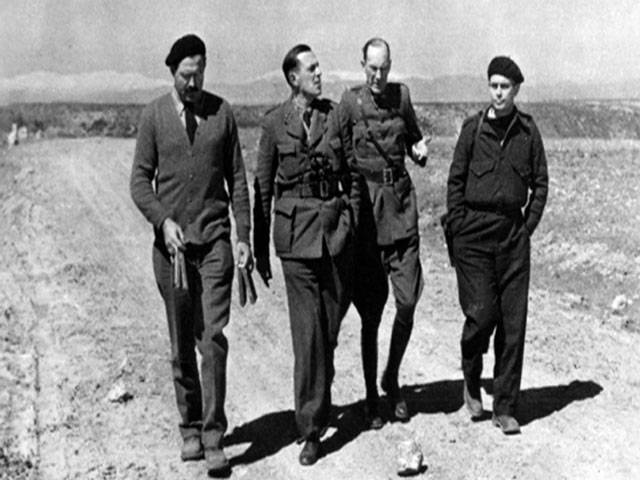The world breaks everyone, and afterward, some are strong at the broken places.
–Ernest Hemingway
Ernest Hemingway, left, with
his fellows working on their
documentary on the war.
Great works of literature are often a reflection of some political, historical or social phenomenon. The statement can be corroborated with examples of Don Quixote of the seventeenth century to Toba Tek Singh of the mid-twentieth century. Of many people who found it imperative to write about politics was Ernest Hemingway.
His famous novel For Whom the Bell Tolls depicts the Spain of 1930s when the country is torn apart by civil war. Like many real-life characters the protagonist, Robert Jordan, of the novel leaves his job to fight for the Republicans. He joins the antifascist Loyalist army. As soon as he meets the antifascist forces, Jordon is assigned a task of destroying a bridge. The drama in the novel unfolds when he falls in love with Maria, a victim of fascist soldiers’ bestiality. Meanwhile, he also makes friendships with the leader of antifascist forces Pablo and his wife, Pilar. Though Jordon succeeds in destroying the bridge, he gets injured.
The novel ends with Jordan proclaiming his love to Maria for one more time and his waiting for the fascist forces and certain death. The novel, critics claim and evidence suggests, was based on Hemingway’s own war experience. His quote stated above proved correct in his case as well. The world broke him as well for participation in the war not only inflicted physical injuries on him, but he also underwent the emotional pain of divorce from his wife.






